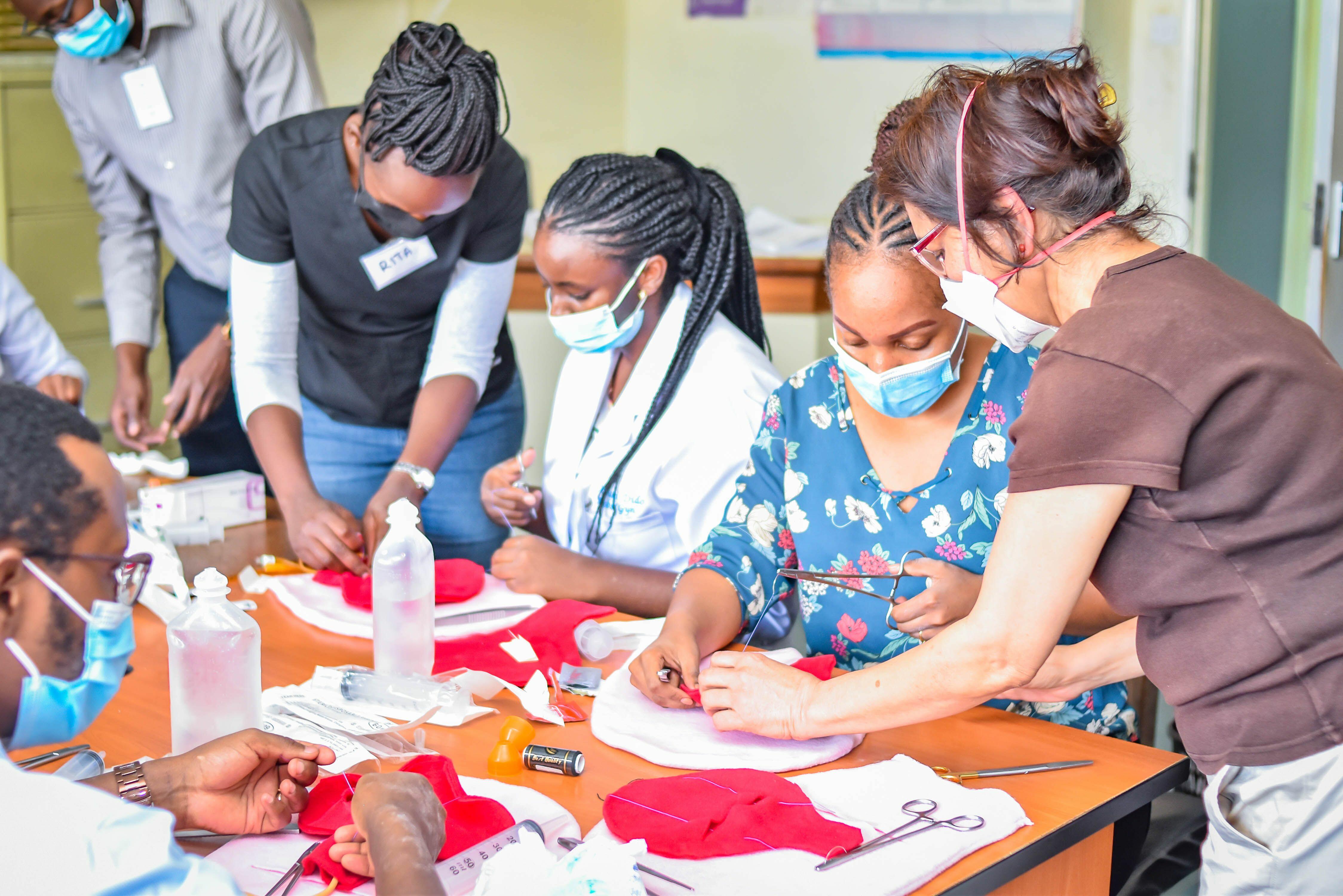
Background
The Advanced Obstetric Surgical and Anaesthetic Course was developed by LSTM primarily to address the issues of quality of care surrounding decision-making and execution of caesarean sections (CS), assisted vaginal delivery (AVD) and other obstetric surgical procedures including anaesthetic and medical care in before, during and after these interventions. Following LSTM-led Confidential Enquiry into Maternal Death reports under the UK Foreign, Commonwealth & Development Office (FCDO) Kenya MNH programme (Apr 2019 – Mar 2023), a key recommendation to reduce substandard care to women and their newborn during pregnancy and childbirth was to improve obstetric and anaesthetic competences of care providers. In response, LSTM developed a multidisciplinary training package that included CS and AVD competencies to optimise outcomes and minimise complications for women and their babies.
Originally delivered as a five-day face to face training intervention, the course covers all aspects of obstetric surgical care, from decision-making, informed consent, preparation for surgery, safe intra-operative surgical and anaesthetic practices, care after operative birth and counselling of the patient. Assisted vaginal birth is taught to promote the use of the vacuum device and reduce the rate of late second-stage CS. With the advent of the Covid-19 pandemic and the implementation of curfews, travel bans and restriction to large-group gatherings, LSTM developed a blended learning version of the course, commencing with a self-directed learning component (15 hours), followed by participation in facilitator-led real-time virtual discussion groups and finally an abbreviated 2-day face-to-face session focused on skill acquisition.
AOAC training in Kenya
The FCDO programme aims to promote and support sustainable strategies to reduce maternal and perinatal mortality and morbidity in Kenya. Under the in-service capacity-strengthening component, LSTM conducted AOAC training for in-service health care providers in Uasin Gishu, Vihiga and Garissa, Kilifi and Taita Taveta.
AOAC training in University of Nairobi (UoN)
In 2022, LSTM with additional support from Johnson & Johnson Foundation partnered with medical training institutions (Moi teaching and referral hospital, and University of Nairobi – department of obstetrics and gynaecology - OBGY) to train OBGY residents in AOAC. 94 OBGY residents were trained by LSTM in AOAC, 17 of whom underwent further training to become trainers and for the university. The trainings were conducted using the blended learning approach (i.e., self-directed learning, real-time virtual sessions and face-to-face skills sessions).

In their own words, UoN OBGY residents share perceptions on the training
During post-training interviews with the trainers and participants, it was observed that the training was very much appreciated, the training approach and content was commendable, the trainers were exceptional, it was a ‘career-transforming’ experience.
A holistic course… “it is not only about the obstetric surgery or procedure, but the whole journey of what a mother goes through for a safe birth; starting with decision making, good counselling, proper informed consent, and all aspects of care before, during and after the surgery, as well as advising her about future births”.
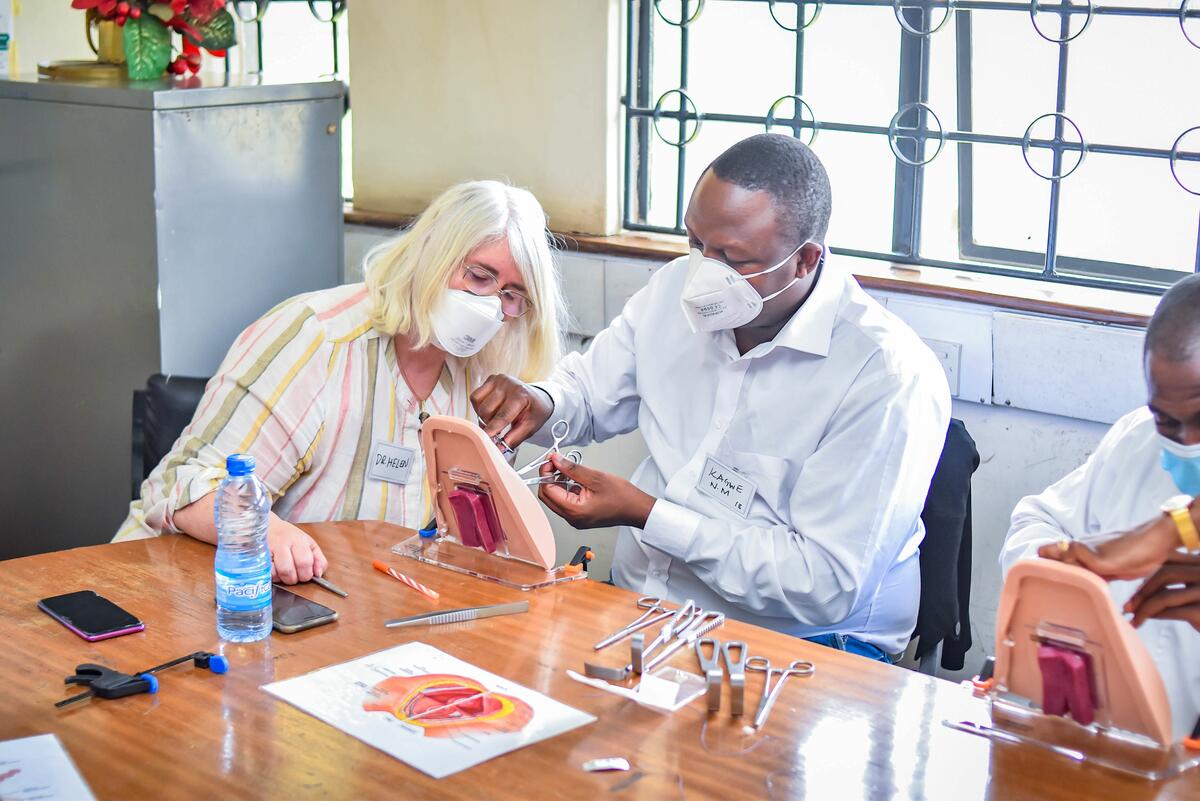
Dr. Allott has been working on interventions to improve capacity of health care providers in low-resource settings through training. She led LSTM team in course development. She commented: “One of the best things for me is when participants come back and tell stories about how they have been able to help patients in a way they couldn’t have done before they came to the course."
LSTM has trained AOAC trainers in Kenya and would like to pass on the skills through training adequate trainers, subsequently handing over the course to them.
Dr Reeta Jha a UK obstetrician and a volunteer training with the EmOC &oC unit LSTM, shares her experience as AOAC trainer and mentor to other trainers. “It has been my dream to train aspiring obstetricians like you (UON residents) who after their graduation, will be going out to various parts of Kenya to practice what they have learned. I thank University of Nairobi for the opportunity. I thoroughly enjoyed it.”
To the newly trained AOAC trainers, she advises, “Use whichever opportunity you get to pass the skills you have learned to someone else. Do it in an organised way, … please practice and teach others”.
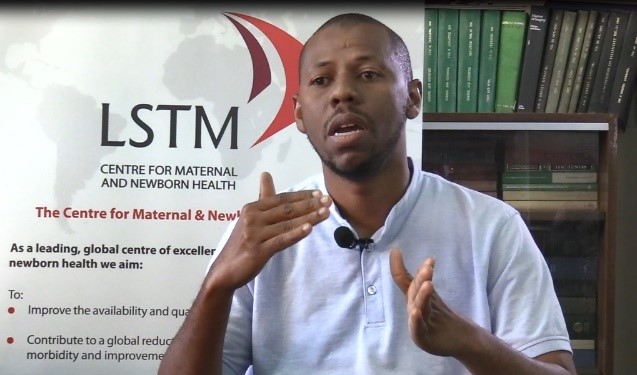
Experience as a trainer, “Training doctors is interesting because they are sharp and understand very fast… the concepts are not new, the rationale of doing things is already known to them, it was a matter of reminding them of some details and polishing up on skills.”
A recommendation to Kenya medical training institutions, … “this course puts a lot of emphasis on clinical skills; while we are training 2nd and 3rd year residents, some had wrong practices that had been inherited from their previous clinical practice. The course should be rolled out to all medical training universities right at the beginning of their enrolment as OBGY residents, so they learn and practice the correct skills from the start”.
On training and mentoring others, … “It is a pleasure. There is a lot of satisfaction you get in your heart from teaching others. The more you teach, the more you learn and perfect your skills. As we grow the pool of AOAC trainers in Kenya, the skills will be propagated to other obstetric providers in the right places and within a couple of years, we will reach every corner of this county, thus improving quality of care to mothers and their newborns”.
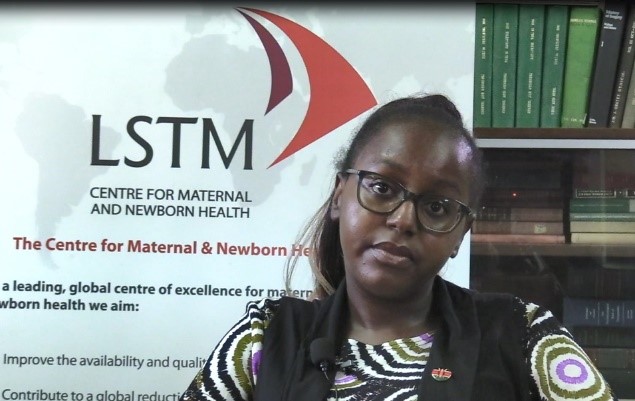
About the training, …. “It was an invaluable experience to be honest! I have learned so many new skills, and not just obstetric skills but also how to be a better leader, mobiliser, communicator, division of tasks, how to delegate to my co-facilitators since I was also the course director. I also learned how to relate how to relate with my colleagues as participants and also my seniors, as my mentors”?
Dr. Aydah believes the course of immense help to her career, both as an aspiring obstetrician and a leader in Kenya. She urged all other residents who had not made it to the course to take it up, “the course is an amazing opportunity to better your skills as a OBGY, and an individual”. She thanked LSTM team led by Dr. Helen Allott and Professor Charles Ameh for giving their time and expertise to design the course content and administer it. “This course covers important topics that my university had not covered”.
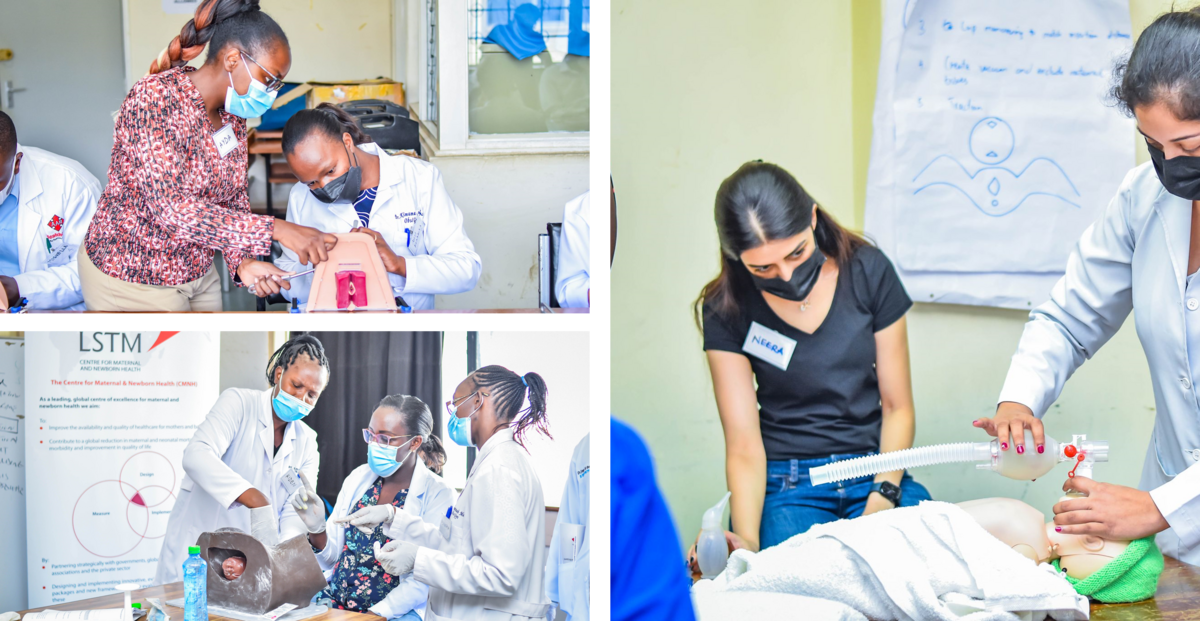
Impact LSTM interventions on obstetric and anaesthetic skills in Kenya
LSTM has built the capacity of 2 of the leading Universities in Kenya to provide improved training to medical students and obstetric specialist trainees, through the FCDO and Johnson and Johnson programmes. Both institutions have trained faculty and equipped skills training rooms now. The self-directed component of the AOAC package can be accessed by medical doctors on the World Continuing Education Alliance platform. The platform allows access to health workers affiliated with medical and midwifery councils in 45 countries and 63 professional medical and nursing/midwifery associations in Africa.
Impact on AOAC; Participants perspective
In Dec 2022, following the AOAC trainings in March and April 2022, LSTM conducted post training follow-up to monitor how the trainings had impacted the skills and clinical practice of the trained residents and below is a summary of participant feedback on training benefits.
- Improved knowledge and skills. The training clearly explains the concepts and rationale behind the procedures. Skills that were most appreciated were
AVD: “I have performed a couple of AVDs and averted quite a number of unnecessary C-sections”.
Comprehensive approach to seeking patient consent. “I feel the difference in the way I seek patient consent today compared to what I used to do before I undertook the course” “I have used skills acquired from the course to save lives. I was on call in KNH and encountered a deeply impacted head of the foetus, was able to manage it safely”. - Improved confidence in perfuming procedures (especially AVD). “Since the training, I have been able to conduct AVD for a number of mothers. I was also called to assist may colleagues who was having challenges.” Some participants have been able to assume a lead-role in managing obstetric emergencies such as maternal resuscitation. “Since the training, I have been able to successfully perform maternal resuscitation for three mothers, two with PPH and one with eclampsia.” “Being a trainer, I was invited to facilitate a session on AVD during a day-seminar for undergraduate medical students, and it went very well”.
- “Surgical safety in theatre has improved not only for us but also the team as we can guide the scrub nurse on needle safety. I feel safe and confident managing patients, and definitely the clinical outcomes are better.”
- “The training modality blended learning approach was appropriate. Having the content to read in advance made learning easier and faster. The real-time online versions provided an opportunity to ask questions and discuss scenarios. The timing was appropriate. As a trainer, it is easier to facilitate students who have read the topic in advance.”
“The Self-directed learning (SDL) saves you more time, everything is clearly presented and accessible; and we have a chance to refer or re-read”. The face to face sessions were useful as they were practising skills based on knowledge that had already been acquired from SDL and real-time online discussions. - Recommending the course to others: “it is making a difference in our clinical practice”. Some participants recommend the course to undergraduates because “when they complete, they are faced with patients in the field that require the same skills to manage.”
There was gratitude for the course and LSTM partnership with UoN. “ I am grateful for the opportunity to be part the course, it has transformed my career and my confidence has shot up. A very good initiative by LSTM so thank you” “When I complete my postgraduate training and return to Nanyuki as a OBGY consultant, I will train the medical officers, interns and midwives in my team on the skills I have learned from the course”
Conclusion
AOAC training is relevant for all obstetric providers in the country. Many health care providers have confirmed improved knowledge, skills, and confidence to provide better quality care, thus saving lives of mothers and newborns. This should translate into contributing to a reduction in maternal and perinatal morbidity and mortality. It is also evident that the course could have even more impact if included in the preservice training at undergraduate level, ensuring that obstetric providers learn the right skills from the outset of their careers. Further to this, the residents who have been trained in UoN will disperse after graduation into various parts of Kenya and beyond, thus increasing coverage by cascading the learned knowledge and skills to other health care providers.